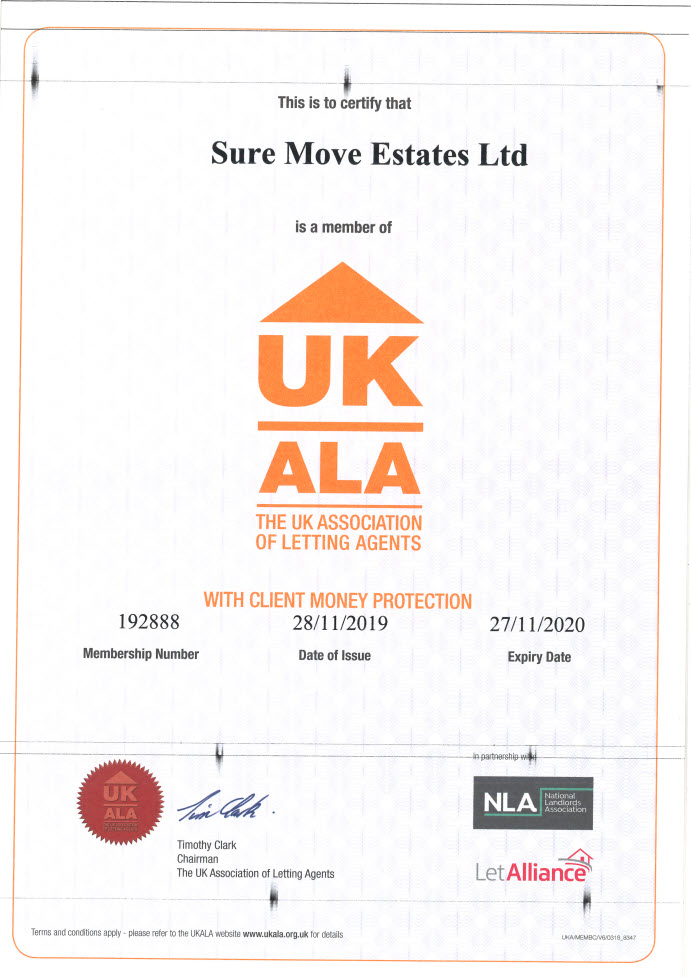Client Money Handling Member Guidance
What is Client Money
Client’s money is money that your business holds or has received on behalf of a client, this can be deposited into a segregated client account via Cash, Cheque, draft or electronic transfer. Please see below examples of client’s money:
Tenants Deposits
Tenants Rent
Interest
Arbitration Fees
Service Charges
Fee money taken in advance
Client money held due to be paid by contractors
Sales proceeds
Money held by member appointed as receiver
UKALA require all members to hold client’s money in a segregated ring-fenced client account that is authorised by the Financial Conduct Authority (FCA). UKALA reserve the right to reject or cancel a member’s application or renewal if the agent does not hold client’s money in a segregated ring-fenced client account.
Client money handling procedures
To comply with the law, agents taking client money must;
• Get a certificate confirming membership of the scheme you join, and provide it to anyone who asks, free of charge.
You’ll need to display the certificate:
• In any office where you deal with the public
• On your website
To comply with requirements set by UKALA for handling of client money an agent must:
1. Have set up a separate bank account for clients’ money;
2. Have the title of their Clients’ money bank account easily distinguished from other accounts of their business;
3. Have in writing from their bank confirmation that all money is held by the business as an agent;
4. Have the banks written confirmation that the bank is not entitled to combine the clients’ money account(s) with any other account or to exercise right of set-off or counterclaim against money in that accounting respect of any sum owed to it or any other account of the business;
5. Have and maintain systems and controls which enable you to monitor and manage clients’ money transactions and any credit risk arising;
6. Have accounting systems and client data securely controlled and protected;
7. Obtain client’s written approval to make payments from their account;
8. Bank all clients’ money at the earliest reasonable opportunity;
9. Nominate authorised staff to handle money
10. Ensure that records show any and all cash transactions
11. Reconcile client accounts together with bank and cash balances at regular intervals in order to demonstrate control over the accuracy and completeness of accounting records;
12. Ensure there are always sufficient funds in the account to pay all amounts owing to clients; and
13. To pay amounts owing to clients as they fall due without delay.

